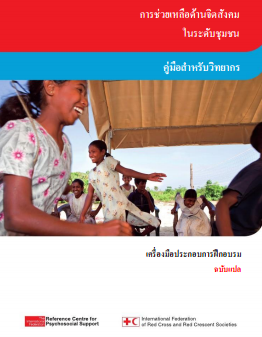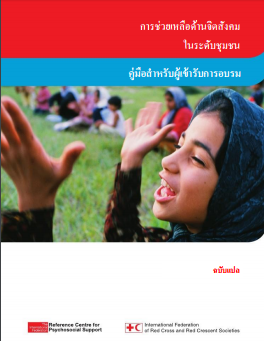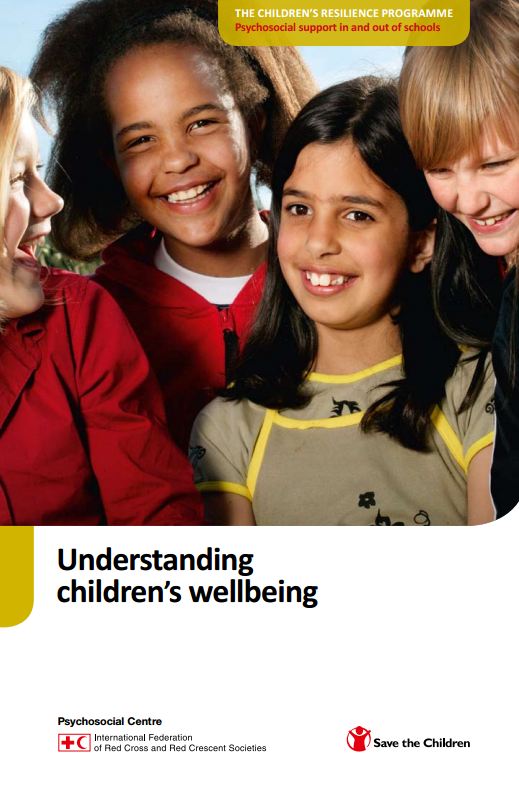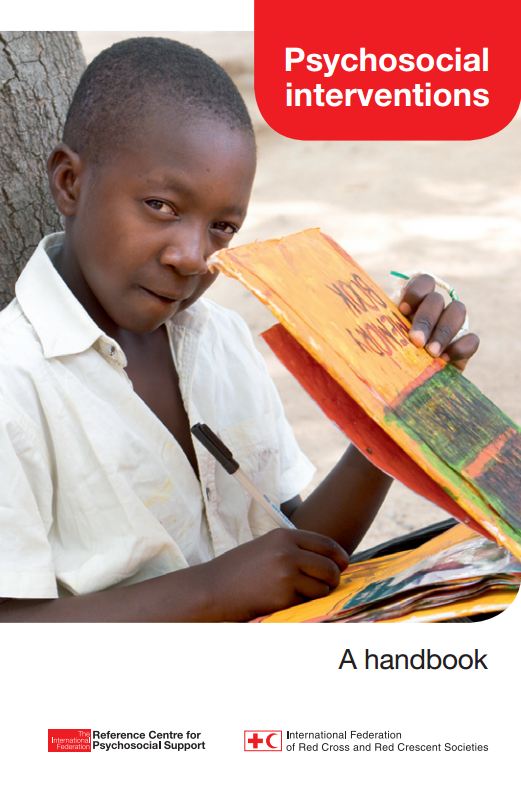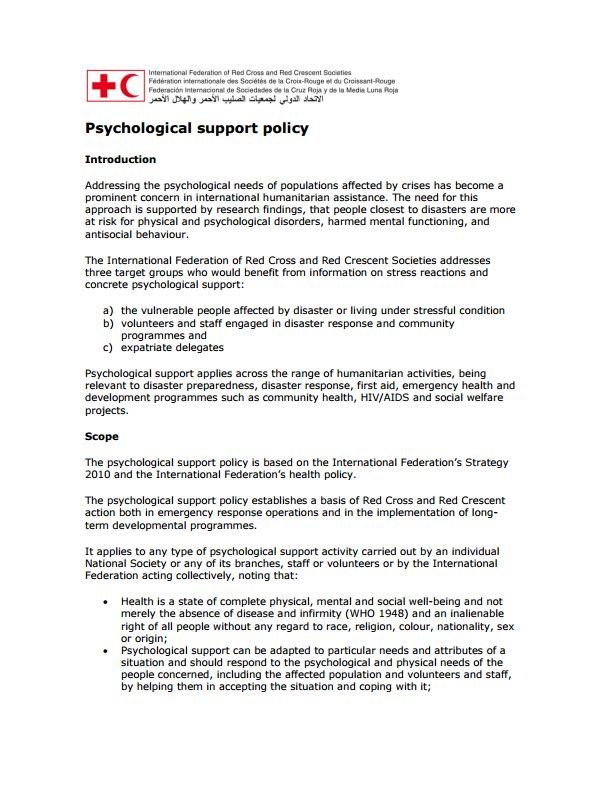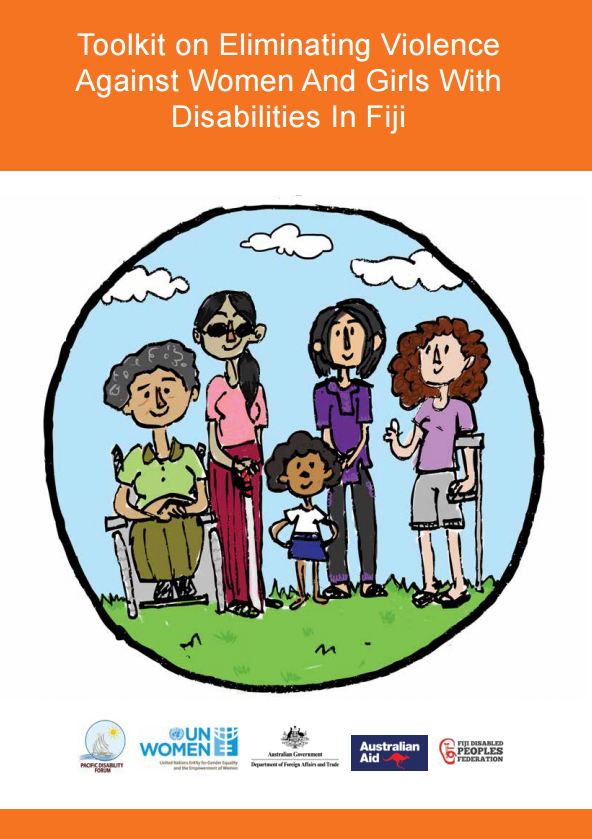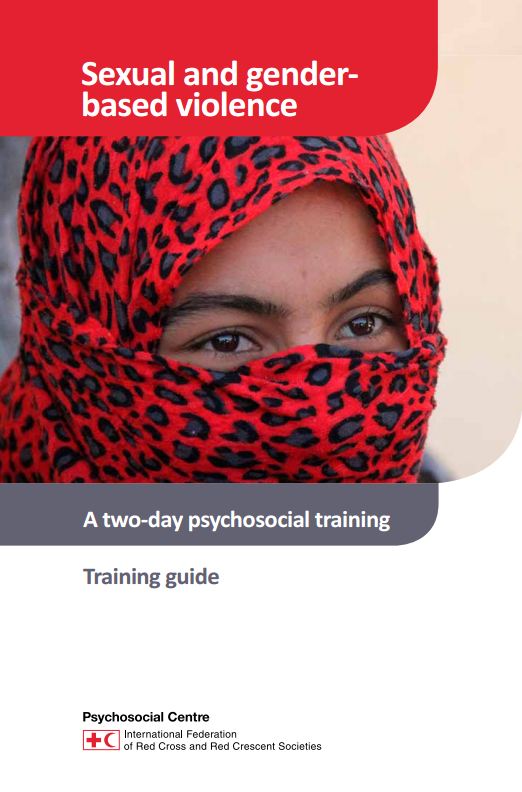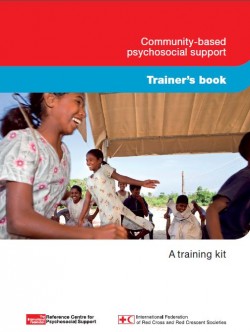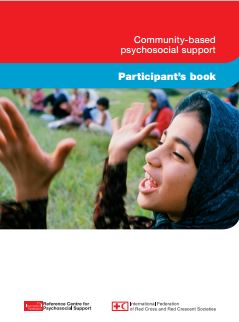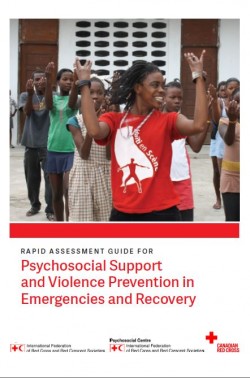วัตถุประสงค์
คู่มือสาหรับวิทยากรเป็นการเสนอแนะวิธีฝึกอบรมเชิงปฏิบัติการให้แก่ผู้เข้ารับการอบรมในแต่ละบทเรียนของการช่วยเหลือด้านจิตสังคมในระดับชุมชนดังที่ปรากฏในคู่มือสาหรับผู้เข้ารับการอบรม บทเรียนทั้ง 7 บทในคู่มือสาหรับผู้เข้ารับการอบรมสามารถใช้เป็นโปรแกรมการอบรมทักษะเบื้องต้นในการช่วยเหลือด้านจิตสังคม ที่ครบถ้วน
บทเรียนย่อยแต่ละบทยังสามารถนาไปใช้เมื่อต้องการฝึกอบรมเฉพาะด้านมากขึ้นได้ คาแนะนำทั้งหมดสาหรับวิทยากรตลอดจนเนื้อหาในบทเรียนสาหรับผู้เข้ารับการอบรมและสไลด์การนำเสนอเป็นประเด็นสาคัญทั่วไป และหากต้องการปรับให้เข้ากับบริบทด้านวัฒนธรรมของพื้นที่ก็สามารถทาได้
เนื้อหาโดยรวม
คู่มือสำหรับวิทยากรประกอบด้วย
• การวางแผนการฝึกอบรมการช่วยเหลือด้านจิตสังคม ได้แก่ คำแนะนาสาหรับการฝึกอบรม 2 หลักสูตร (การฝึกอบรมสาหรับวิทยากร และการฝึกอบรมขั้นพื้นฐาน) และการจัดทารายการประเด็นต่าง ๆ ที่ต้องพิจารณาเมื่อวางแผนการจัดการฝึกอบรมในแต่ละบริบทของสภากาชาดหรือสานักงานสาขา
• กระบวนการเรียนรู้ในบริบทด้านจิตสังคม เนื้อหาสะท้อนให้เห็นถึงกระบวนการเรียนรู้สาหรับผู้ใหญ่ และชี้ไปที่ประเด็นเฉพาะสาหรับการเรียนรู้และการส่งเสริมการเรียนรู้ในบริบทด้านจิตสังคม
• การเตรียมการฝึกอบรมเชิงปฏิบัติการเรื่องการช่วยเหลือด้านจิตสังคม ให้คาแนะนาเรื่องการเตรียมความพร้อมล่วงหน้า วิธีการทางานกับผู้แปล และการปฏิบัติการที่จาเป็นต้องพิจารณา
• การดำเนินการฝึกอบรมเชิงปฏิบัติการ ชี้แนะถึงเทคนิคต่าง ๆ ได้แก่ การเริ่มต้นการฝึกอบรมที่ดี วิธีการสอนเช่น การบรรยาย การอภิปรายระหว่างผู้เข้ารับการอบรม) วิธีสรุปทบทวนบทเรียนและการประเมินผลการฝึกอบรม
• คู่มือและการบรรยายด้วยโปรแกรมเพาเวอร์พอยต์ สาหรับวิทยากร เป็นเครื่องมือการสอนที่เป็นรูปธรรมชัดเจนซึ่งพัฒนาขึ้นสาหรับแต่ละบทเรียน ประกอบด้วย
วัตถุประสงค์การเรียนรู้ ข้อเสนอแนะสาหรับการอภิปรายในประเด็นและกิจกรรมต่าง ๆ สไลด์การนาเสนอ และแนวทางการบรรยาย เอกสารประกอบการบรรยายที่นำมาใช้ระหว่างการฝึกอบรมอยู่ท้ายบทเรียนแต่ละบท
• ทรัพยากรสาหรับฝึกอบรม แผ่นซีดีประกอบด้วยคู่มือสาหรับผู้เข้ารับการอบรม คู่มือสาหรับวิทยากร สไลด์การบรรยาย ไฟล์ต้นแบบการบรรยาย (สาหรับสร้างสไลด์การบรรยายด้วยตนเอง) คู่มือการดาเนินงานด้านจิตสังคม คู่มือและแผ่นดีวีดีของศูนย์อ้างอิงเพื่อการช่วยเหลือด้านจิตสังคมฯ เรื่อง “ความหวังสร้างใหม่ได้” สามารถใช้แนะนำสาระหลักของการฝึกอบรมนี้ หากประสงค์จะปรับปรุงอุปกรณ์ประกอบการฝึกอบรม โปรดติดต่อไปที่ศูนย์อ้างอิงเพื่อการช่วยเหลือด้าน จิตสังคมฯ
ประเภท: การแนะแนวทางสำหรับผู้อบรม
ผู้ใช้: ผู้อบรมด้านจิตสังคม
Download: https://www.rcrc-resilience-southeastasia.org/wp-content/uploads/2017/03/pss-manual-trainersbook-thai.pdf

